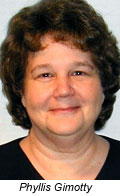| School of Medicine Awards |
|
,
|
|
Dripps Award for Excellence in Graduate Medical Education
Dr. Richard F. Summers, clinical associate professor and associate director of Education for Residency Training in the department of psychiatry, has been chosen to receive the Dripps Award for Excellence in Graduate Medical Education. A leader in developing contemporary psychotherapy training tools and competency assessments for psychiatrists, Dr. Summers has created a nationally recognized psychotherapy training program in the Penn Psychiatry Residency which integrates various models of psychotherapy and emphasizes their use in the context of general psychiatric practice. |
Leonard Berwick Memorial Teaching Award
|
Dr. Jordan Orange, assistant professor of pediatrics, is the recipient of the Leonard Berwick Memorial Teaching Award recognizing outstanding fusion of basic science and clinical medicine. Dr. Orange’s clinical effort is focused upon children with genetic deficiencies of the immune system and he performs basic immunology research fueled by insights obtained from these patients. A student said of Dr. Orange: “his ability to teach and motivate students during any interaction is a testament to his outstanding teaching talent.” |
Blockley-Osler Award
|
Dr. Jane Lavelle, associate professor of pediatrics and associate director of the emergency department at CHOP, has been chosen to receive the Blockley-Osler Award. Dr. Lavelle has served as director of Resident Education, Medical Student courses and was fellowship director for Pediatric Emergency Medicine over the last decade. According to Dr. Lavelle, the most rewarding part of her job is teaching fellows, residents and medical students as they care for sick children in the emergency department at CHOP. “Jane is tireless in her mission to teach budding clinicians to help fellows develop the skills to be excellent teachers,” said a colleague. |
Scott Mackler Award for Excellence in Substance Abuse Teaching
 |
Dr. Fred M. Henretig, professor of pediatrics and emergency medicine at the School of Medicine, and director of the section of clinical toxicology at CHOP, is the recipient of the Scott Mackler Award for Excellence in Substance Abuse Teaching. He has over 30 years experience in academic pediatric emergency medicine and medical toxicology, having participated in the founding of Philadelphia’s regional poison control center in 1985, and serving as its medical director until 2005. His scholarly interests include the management of a variety of pediatric toxicologic and environmental health hazards, in addition to those issues related specifically to adolescent substance abuse. In recent years he also has become involved in disaster preparedness and education, particularly in the context of chemical threats, and has participated clinically on medical disaster relief teams responding to New York City on 9/11/2001, Banda Aceh, Indonesia after the 2004 tsunami, and in 2005 to New Orleans in the wake of Hurricane Katrina. |
Dean's Award for Excellence in Graduate Student Training
 |
The Dean’s Award for Excellence in Graduate Student Training was established in 1992-93 to recognize excellence in graduate education. This year the award is presented to Dr. Phyllis Gimotty, associate professor of biostatistics. Dr. Gimotty joined Penn in 1998 as the acting director of the biostatistics unit at the Penn Cancer Center. She established the graduate program in biostatistics and has contributed to many of the educational activities of the Graduate Group in Epidemiology and Biostatistics. She has also been instrumental in developing biostatistics training for many Biomedical Graduate Studies Ph.D. students. Dr. Gimotty’s clinical research interests include cancer translational research, cancer prevention and control, risk assessment, and health services research. Her primary research interests include categorical and survival analysis, model assessment, classification trees, longitudinal data, evaluating diagnostic tests and methods for incomplete data. She is currently a co-principal investigator on a project to use novel biostatistical methods to identify new immunohistochemical biomarkers in melanoma. |
Dean's Award for Excellence in Clinical Teaching at an Affiliated Hospital
The Dean’s Award for Excellence in Clinical Teaching at an Affiliated Hospital is presented to three members: Dr. Gregg Gorton, clinical associate professor of psychiatry and staff psychiatrist at the Philadelphia Department of Veterans Affairs Medical Center; Dr. Prithvi S. Sankar, assistant professor of clinical ophthalmology; and Dr. Lisa B. Zaoutis, assistant professor of pediatrics and section chief of inpatient services for the division of general pediatrics at CHOP.
|
Dr. Gorton’s primary professional identity has been as a psychiatric educator and clinician, though he has also contributed numerous publications to psychiatric literature. Having taught for 25 years, he has won teaching awards from three different medical schools and the National Association for Academic Psychiatry. He is nationally known in the areas of personality disorders and of doctor-patient sexual boundaries education, but he currently focuses his educational efforts on bedside clinical teaching. Residents and students frequently comment on his deeply humane approach to patient care, manifested by his thoroughgoing biopsychosocial approach and the ample time he spends rounding on patients with his team.
|
|
Dr. Sankar’s specialty is the medical and surgical treatment of glaucoma and he serves as the director of the medical student program for the ophthalmology department. He has made teaching medical students, residents, and fellows a top priority. From the words of one resident, “Dr. Sankar makes sure that everyone he teaches gets the most out of the time they’re there.” |
|
Dr. Zaoutis is a motivated and motivating teacher of pediatric hospital medicine. Especially important to “Dr. Z” is teaching students to think independently and logically while infusing additional medical knowledge into them. Comments from her students liken her to a sports coach who is “tough and no-nonsense while at the same time kind and encouraging. She actively works to promote the individual performance of each member of the team, while keeping the team working together to deliver the best possible care to the patients on the service. She sees it as her mission to teach us as much as possible and have fun doing it.” |
Dean's Award for Excellence in Medical Student Teaching by an Allied Health Professional
 |
Dr. Donna M. McDonald-McGinn, associate director of clinical genetics at CHOP is the recipient of the Dean’s Award for Excellence in Medical Student Teaching by an Allied Health Professional. She has authored a handbook for parents and professionals on the Chromosome 22q11.2 Deletion Syndrome and she is the editor-in-chief of a quarterly newsletter, 22q and You. She has also organized numerous conferences and symposia and she has presented platform presentations both as a juried and invited speaker. Over the years she has taught innumerable undergraduates, nurses, graduate students, medical students, residents, and fellows. Currently she is also the program director of the “22q and You” Center, a multidisciplinary clinic for children and adults with the chromosome 22q11.2 deletion, at CHOP. She is also a founding board member of the International 22q11.2 Deletion Syndrome Foundation, Inc. She comments that she has benefited tremendously from working “shoulder to shoulder” with many of the world’s leading clinicians, educators, and researchers, along with amazing support staff while at Penn, not to mention extraordinary patients and their families who have “taught her more than they can ever know.” |
Dean's Award for Excellence in Basic Science Teaching
|
Dr. Neal A. Rubinstein, associate professor of cell and developmental biology, has received the Dean’s Award for Excellence in Basic Science Teaching. During the past four years, Dr. Rubinstein has been director of the gross anatomy course for first year medical students. He has sparked a renewal of interest and excitement in gross anatomy by modernizing the traditional approach, emphasizing clinical relevance, and incorporating novel and positive approaches to learning. Students have commented that Dr. Rubinstein creates “a great learning environment that is fun, enthusiastic, non-competitive, and serious. This course was a wonderful breath of fresh air. Dr. Rubinstein emphasized learning for the sake of learning.” |
Special Dean's Award
 |
Dr. Judy A. Shea, professor in the division of general internal medicine and associate dean of Medical Education Research and director of the Office of Evaluation and Assessment, has been awarded the Special Dean’s Award. This award honors achievements by Penn faculty members, particularly in the development of new and innovative education programs. Dr. Shea directs the evaluation of the medical school curriculum and collaborates with faculty and fellows to design and implement medical education evaluation and research projects. She has led the team development efforts that began with using consensus processes to define the important domains of teaching effectiveness, progressed to implementing a web-based evaluation system in all clinical departments, and culminated in a teaching dossier in which evaluative data provided by students, residents, and fellows are summarized in a systematic and comparative fashion for all clinical faculty in the SOM. Notably, Dr. Shea is among the most prolific and well-published of the SOM faculty in medical education, having published over three dozen medical education papers in the last few years. |
Medical Student Government Teaching Awards
|
Dr. David L. Gasser, professor of genetics, is the recipient of the MSG Teaching Award in Basic Science. For the past nine years, Dr. Gasser has coordinated “Module 1: Core Principles,” as well as presenting several lectures during the course. He is completely dedicated to medical student education and to Penn and performs his job with impressive equanimity. Students commented that Dr. Gasser’s enthusiasm for genetics was contagious and that his leadership of the course and organizational ability was a “phenomenal strength.” |
|
Dr. Todd D. Barton, assistant professor of clinical medicine in the department of medicine division of infectious diseases, is the recipient of the MSG Clinical Teaching Award. Dr. Barton is also the associate program director for the Internal Medicine Residency Training Program and the co-program director for the Medicine-Pediatrics Combined Training Program at the Hospital of the University of Pennsylvania. His clinical interests focus on infectious diseases predominantly related to bone marrow and organ transplants. He has also been awarded the Penn Pearls Teaching Award (2006) and the Maurice F. Attie Faculty Teaching Award (2004, 2005) among other awards. |
|